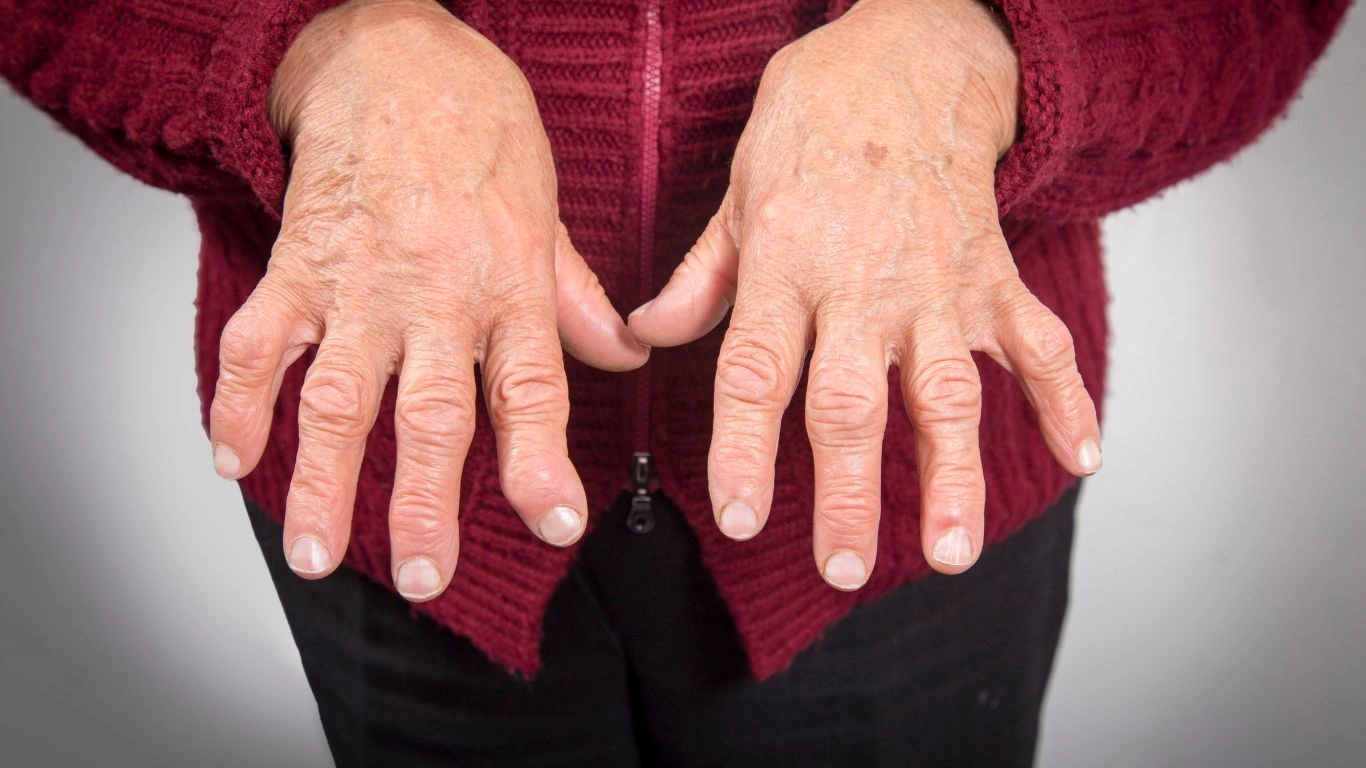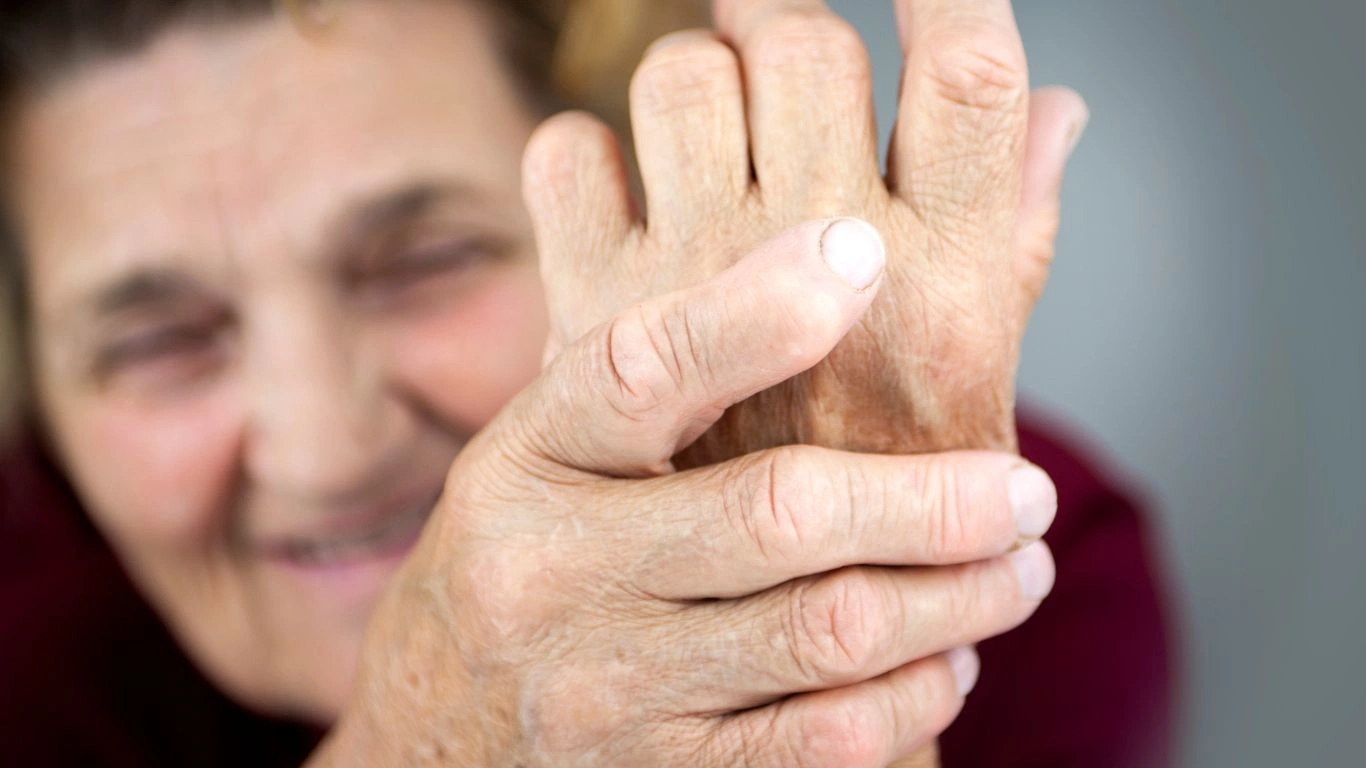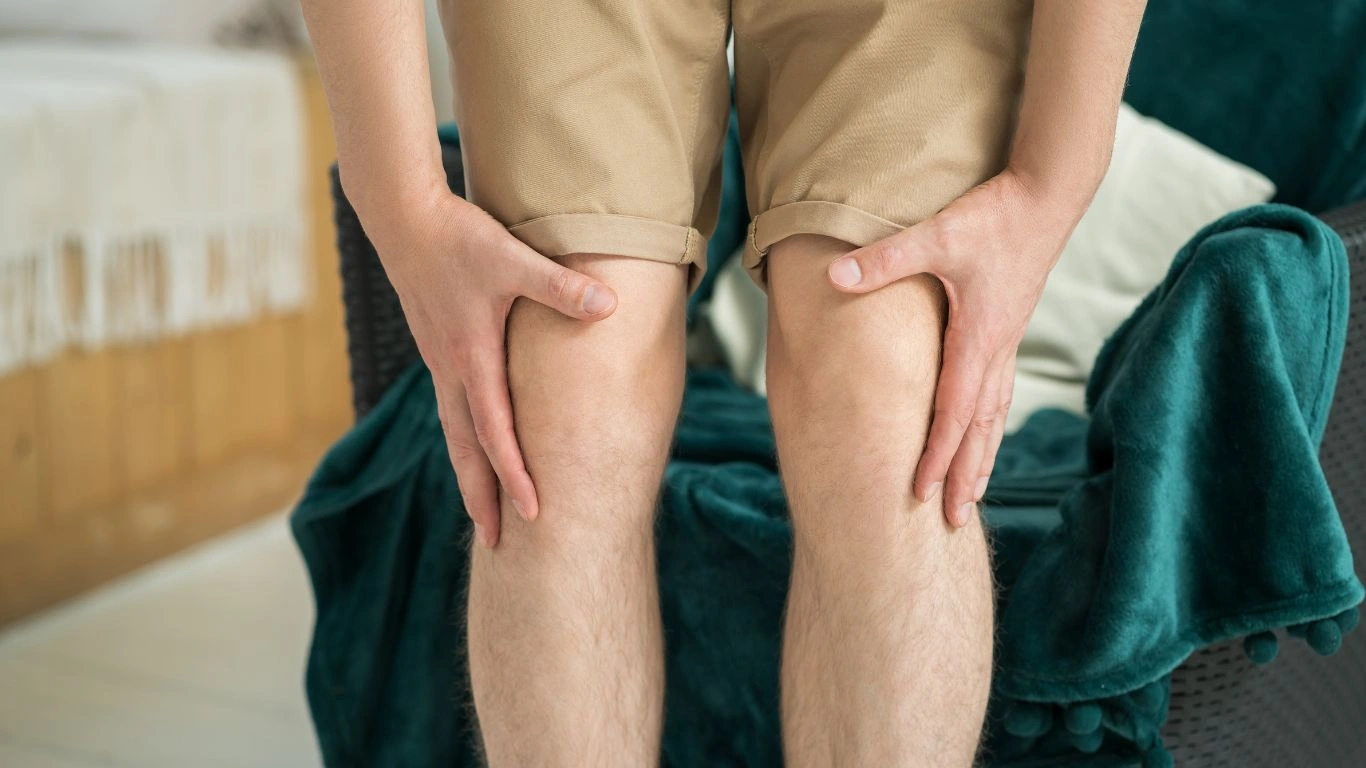How to Manage Rheumatoid Arthritis Naturally at Home for Pain Relief
Living with rheumatoid arthritis (RA) is like riding a roller coaster—some days, you’re on top of the world, and other days, even opening a jar feels like a battle. If you’ve been searching for how to manage rheumatoid arthritis naturally at home, you’re in the right place. As someone who has spent years helping patients navigate this condition, I know firsthand that relief isn’t just about prescriptions. There’s a whole world of natural strategies that can make a massive difference in your day-to-day life. Let’s dive into some of the most effective ways you can manage RA symptoms without stepping into a doctor’s office.
Understanding Rheumatoid Arthritis: More Than Just Joint Pain
RA isn’t just about achy joints—it’s an autoimmune disease, which means your immune system mistakenly attacks your own body. This leads to inflammation, stiffness, and pain that can make even simple tasks feel overwhelming. The goal? Reduce that inflammation naturally while keeping your joints happy and mobile.
Anti-Inflammatory Diet: Food as Medicine

One of the most powerful ways to manage RA naturally is by focusing on an anti-inflammatory diet. Trust me, I’ve seen patients transform their pain levels simply by changing what’s on their plate. Here’s what you should be eating more of:
Foods That Fight Inflammation
- Fatty Fish – Salmon, mackerel, and sardines are packed with omega-3s, which can help reduce joint inflammation.
- Leafy Greens – Spinach, kale, and Swiss chard are loaded with antioxidants that help combat oxidative stress.
- Berries – Blueberries, strawberries, and blackberries are rich in polyphenols that can fight inflammation.
- Nuts & Seeds – Walnuts, flaxseeds, and chia seeds contain healthy fats and fiber that support joint health.
- Turmeric & Ginger – These spices have natural anti-inflammatory properties that can ease RA symptoms.
Foods to Avoid
Just as some foods help, others can make RA symptoms worse. I always tell my patients to cut back on:
- Processed Foods – Fast food, packaged snacks, and processed meats can trigger inflammation.
- Refined Sugars – Sweets, sodas, and pastries can lead to blood sugar spikes and worsen inflammation.
- Alcohol & Excessive Caffeine – While a little coffee or wine is okay, too much can trigger flare-ups.
Gentle Movement: Exercise Without Overdoing It

Exercise might sound like the last thing you want to do when your joints are screaming at you, but trust me, movement is medicine. I’ve seen even the most hesitant patients benefit from the right kind of exercise. The key is finding activities that keep you moving without overloading your joints.
Best Exercises for RA
- Yoga & Tai Chi – These low-impact exercises improve flexibility and reduce stress, which can help lower inflammation.
- Swimming – Water workouts take pressure off the joints while still giving you a great full-body workout.
- Gentle Stretching – A few daily stretches can help keep your joints flexible and reduce morning stiffness.
- Walking – A short, slow-paced walk can help maintain mobility without putting too much strain on your body.
Listening to Your Body
One of the biggest mistakes I see people make is pushing themselves too hard. If your body is telling you to rest, listen! Some days, gentle stretching is all you need, and that’s okay.
Natural Pain Management: Easing Discomfort Without Medication

When a flare-up hits, it’s easy to feel like you have no choice but to reach for painkillers. But over the years, I’ve seen patients manage their pain naturally with simple, effective methods. It’s all about finding what works for your body and sticking with it.
Heat and Cold Therapy
One of the quickest ways to get relief is through heat and cold therapy. I personally swear by these techniques on tough days:
- Warm compresses – A heating pad or warm towel can loosen up stiff joints and improve circulation.
- Hot showers or baths – Soaking in a warm bath with Epsom salt is a lifesaver when my joints feel extra inflamed.
- Cold packs – Perfect for reducing swelling and numbing deep joint pain during a flare-up.
Essential Oils & Natural Topicals
Essential oils might sound trendy, but they can actually work wonders for RA pain. Some of my patients have seen great results using:
- Lavender oil – Helps with relaxation and pain relief.
- Peppermint oil – Has a cooling effect that can ease joint stiffness.
- Capsaicin cream – Made from chili peppers, this cream can provide deep pain relief.
Acupuncture & Massage
There’s something magical about hands-on therapies. Acupuncture has been shown to help with pain by stimulating nerves and improving blood flow. A gentle therapeutic massage can also help reduce muscle tension around sore joints. I’ve had patients walk into a session barely able to move and leave feeling like new.
Managing Stress: The Hidden Trigger for RA Flares

RA isn’t just about physical symptoms—stress can be a huge trigger for flare-ups. I’ve seen firsthand how emotional stress can turn mild joint pain into a full-blown crisis. The good news? There are simple ways to keep stress levels in check.
Mindfulness & Meditation
If you’ve never tried meditation, now is the time. Just five minutes of focused breathing can calm your nervous system and lower inflammation. Some great options include:
- Guided meditation apps – Calm and Headspace offer quick, stress-relieving sessions.
- Breathing exercises – Try the 4-7-8 method: inhale for 4 seconds, hold for 7, and exhale for 8.
- Gratitude journaling – Writing down three things you’re grateful for daily can shift your mindset.
Prioritizing Rest & Sleep
RA fatigue is real, and if you’re not sleeping well, your symptoms will likely get worse. Here are a few ways to improve your sleep:
- Create a bedtime routine – A warm bath, light stretching, and no screens before bed.
- Use supportive pillows – Ergonomic pillows can relieve pressure on sore joints.
- Try herbal teas – Chamomile and valerian root tea can promote better sleep.
Herbal Remedies & Supplements for RA Relief

Supplements and herbs can be powerful allies in managing RA symptoms. While they’re not a cure, they can help reduce inflammation and support joint health naturally.
Best Supplements for RA
- Omega-3 Fatty Acids – Found in fish oil, these can help reduce joint stiffness.
- Turmeric (Curcumin) – A natural anti-inflammatory powerhouse.
- Vitamin D – Helps regulate the immune system and may lower inflammation.
- Glucosamine & Chondroitin – Support cartilage health and reduce joint pain.
Herbs That Help
- Ginger – Works similarly to NSAIDs in reducing inflammation.
- Boswellia (Indian Frankincense) – Has strong anti-inflammatory effects.
- Green Tea – Loaded with antioxidants that fight inflammation.
Before trying any new supplement, always check with a healthcare professional. Natural doesn’t always mean risk-free!
Case Studies & Real-Life Examples

Sometimes, the best way to understand what works is by hearing real stories. Over the years, I’ve worked with many people battling rheumatoid arthritis, and I’ve seen firsthand how natural strategies can truly change lives. Here are a couple of inspiring cases that prove managing RA at home is possible.
Emma’s Journey: From Constant Pain to Active Living
Emma, a 52-year-old teacher, came to me feeling defeated. Her morning stiffness lasted hours, and by lunchtime, she was struggling to get through the day. Medications helped, but she wanted more control over her symptoms.
We focused on three key areas:
- Anti-inflammatory diet – She swapped out processed foods for whole, nutrient-dense meals.
- Daily movement – Gentle yoga and swimming became her go-to exercises.
- Stress management – Emma practiced meditation and breathing exercises every evening.
Three months later, she was walking without pain, sleeping better, and feeling more like herself again.
James’ Experience: Beating Flare-Ups with Lifestyle Changes
James, a 40-year-old software engineer, had flare-ups that left him unable to type for long periods. He was skeptical about natural remedies but was willing to try.
Here’s what worked for him:
- Supplements – Omega-3s and turmeric significantly reduced his joint pain.
- Massage therapy – Regular sessions relieved muscle tension and stiffness.
- Ergonomic adjustments – A standing desk and wrist support reduced strain.
Now, James rarely experiences severe flare-ups and feels in control of his RA.
Key Takeaways: What You Need to Remember

Managing rheumatoid arthritis naturally isn’t about one magic cure—it’s about small, consistent changes that add up over time. If there’s one thing I’ve learned from working with RA patients, it’s that no two journeys are the same. But some core strategies work for nearly everyone.
The Essentials for Natural RA Management
- Eat for healing – Stick to anti-inflammatory foods and avoid processed junk.
- Move your body – Gentle exercise is better than no movement at all.
- Manage stress – Meditation, journaling, or even just deep breathing can make a huge difference.
- Listen to your body – Rest when you need to, but don’t let RA stop you from living.
FAQs
Here are some of the most common questions I get about managing RA naturally.
Can diet alone cure rheumatoid arthritis?
No, but it can significantly reduce inflammation and improve symptoms. Pairing the right foods with other lifestyle changes can have a powerful impact.
How long does it take to see results from natural remedies?
It varies. Some people notice improvements within weeks, while others take months. The key is consistency and patience.
Are supplements safe for RA?
Most are safe, but always consult with a healthcare provider before adding anything new to your routine.
Bonus: Additional Resources & DIY Tips
Want to dive deeper into natural RA management? Here are some resources and simple DIY remedies you can try at home.
Helpful Resources
- Arthritis Foundation – Reliable information on managing RA.
- National Institutes of Health – Research-based articles on RA treatments.
- MedlinePlus – A great place to learn about medications and supplements.
DIY RA Remedies
- Turmeric tea – Mix turmeric, black pepper, and honey in warm water for a soothing anti-inflammatory drink.
- Epsom salt bath – Relax in warm water with Epsom salts to ease joint pain.
- Homemade heat pack – Fill a sock with rice, microwave it, and use it as a heat compress.
Appendix: Table, References, Disclaimer, & Call to Action
Quick Reference Table
| Natural Remedy | Benefits |
|---|---|
| Omega-3 Supplements | Reduces joint inflammation |
| Yoga & Tai Chi | Improves flexibility and reduces stress |
| Heat & Cold Therapy | Provides immediate pain relief |
| Turmeric | Acts as a natural anti-inflammatory |
References
Disclaimer
This article is for informational purposes only and should not be taken as medical advice. Always consult with a healthcare professional before making changes to your treatment plan.
Call to Action
Managing rheumatoid arthritis naturally takes time, but the results can be life-changing. Start small, be consistent, and remember—you’re not alone in this journey. Have any tips or personal experiences to share? Drop them in the comments below!

Tarra Nugroho is a dedicated Nurse Practitioner with a strong foundation in family and preventive care. She brings both compassion and clinical expertise to her practice, focusing on patient-centered care and health education. As a contributor to Healthusias.com, Tarra translates medical knowledge into clear, empowering articles on topics like women’s health, chronic disease management, and lifestyle medicine. Her mission is simple: help people feel seen, heard, and informed—both in the clinic and through the content she creates. When she’s not caring for patients, Tarra enjoys weekend hikes, plant-based cooking, and curling up with a good health podcast.







